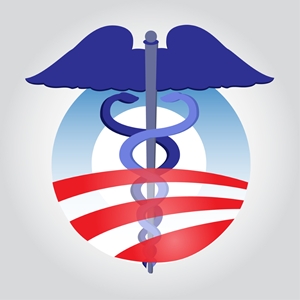
The race for the White House is in full swing, as candidates on both sides of the aisle – Democrats and Republicans – are touring the country, shaking hands and pressing flesh with the nation's voters who will hit the polls come the first Tuesday in November to decide who they think is the most qualified person to reside at 1600 Pennsylvania Ave.
There are several "mini" elections between now and then, though, with the initial one being February's Iowa caucuses, followed by New Hampshire shortly thereafter for its first-in-the nation primary. It's these early elections that the candidates are hoping to sweep, as a win in either the Hawkeye State or the Granite State helps to build the momentum needed to win their party's nomination.
Though some argue that the presidential election is a popularity contest more than anything, the race will ultimately be decided by where candidates stand on the issues. Chief among Americans' concerns is health care and, if elected, what candidates would do to ensure health care's success, which represents one-sixth of the U.S. economy.
With business tycoon Donald Trump, former pediatric surgeon Dr. Ben Carson and Texas Sen. Ted Cruz leading the polls for the GOP ticket – and former Secretary of State Hillary Clinton outpolling her rival contenders for the Democratic Party nod – the following is a brief rundown of where the candidates stand as it relates to health care.
Donald Trump
If you go to the 69-year-old business magnate's campaign website, you won't find a section that discusses Trump's take on health care. Nevertheless, the chairman and president of the eponymously named Trump Organization has been fairly outspoken regarding what he thinks about the Affordable Care Act, which mandates that individuals buy health insurance and for all large businesses to provide employee benefits to their full-time employees, assuming they employ 100 or more workers.
"ObamaCare's going to be repealed and replaced," Trump told "60 Minutes" correspondent and CBS Evening News host Scott Pelley in a recent interview. "ObamaCare is a disaster if you look at what's going on with premiums where they're up 40, 50, 55 percent."
Trump hasn't detailed what he would put in the ACA's place should it be repealed. However, he has assured Americans that "everybody's going to be taken care of much better than they're taken care of now."
Ben Carson
Many would argue that Carson is one of the more uniquely qualified candidates to discuss the United States' health care system, given his neurosurgeon bona fides, having served as director of pediatric neurosurgery at Johns Hopkins Hospital in Maryland for nearly 30 years. Like his fellow GOP contenders, Carson is also opposed to the ACA, but is a fervent supporter of private health savings accounts. If elected, Carson has vowed to do everything possible to repeal the ACA's version of health care reform, an action that will allow consumers to take more control over their health care through so-called "health empowerment accounts."
Ted Cruz
Of all the candidates on the Republican ticket, Cruz might be the most outspoken of them all. In 2014, the junior senator from Texas took the floor of the U.S. Senate, engaging in a prolonged filibuster to repeal the ACA. He's also supported a number of bills that have aimed to do the same thing. At TedCruz.com, the 44-year-old former solicitor general of Texas notes that under a Cruz administration, there would be a full repeal and replacement of the ACA, which he says has led to job losses and sky-high premiums.
Hillary Clinton
Former first lady Clinton – who served in various positions under President Barack Obama's administration, including as secretary of state – is an unabashed supporter of the ACA, stating that she would support the continuance of the health care overhaul, which since becoming law has helped an estimated 10 million Americans receive health coverage. The former senator of New York notes at her campaign website that she would continue where the ACA left off by making coverage even more widely available, slowing the growth of health care costs and enhancing the quality of medical treatment.





